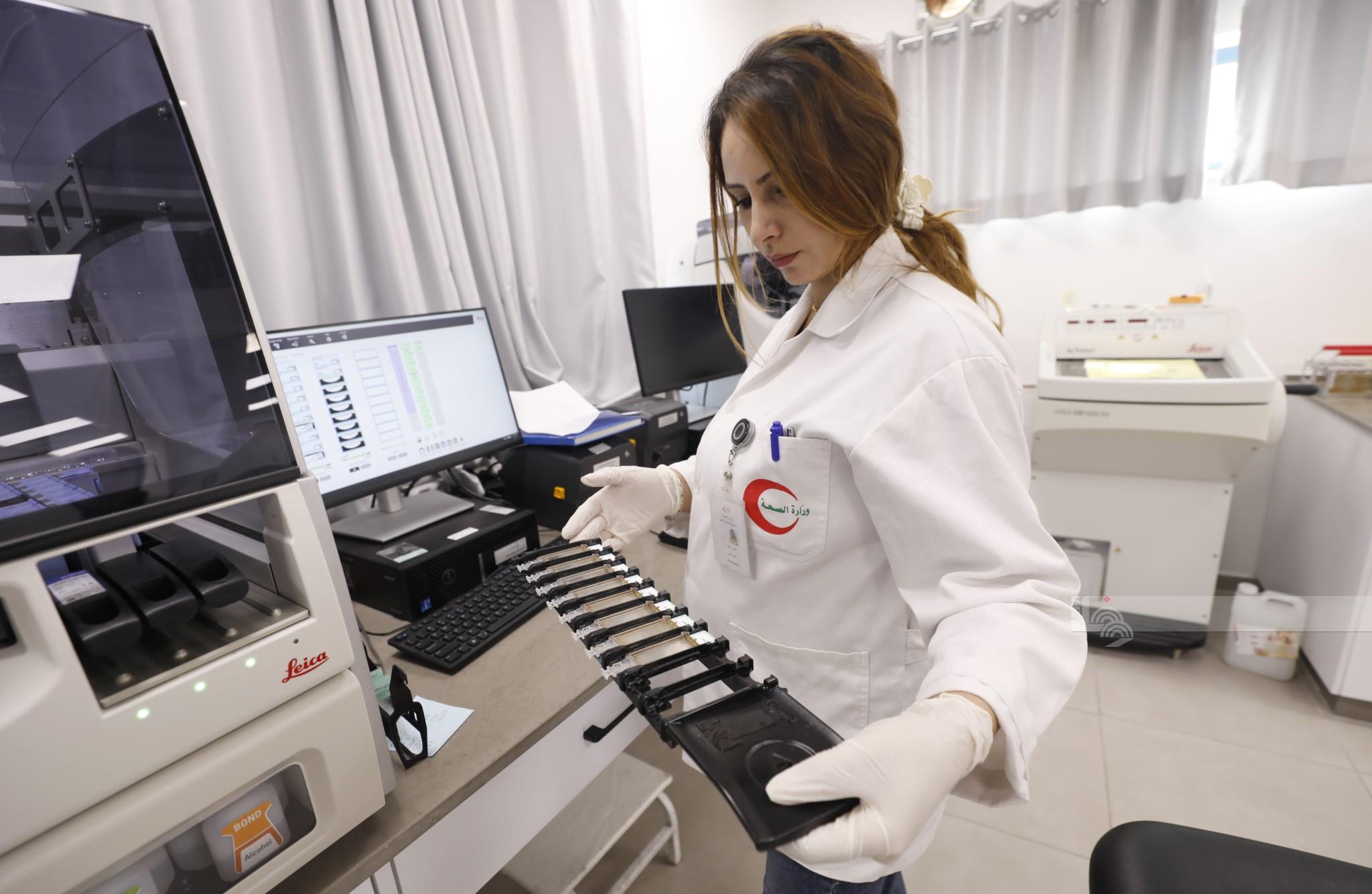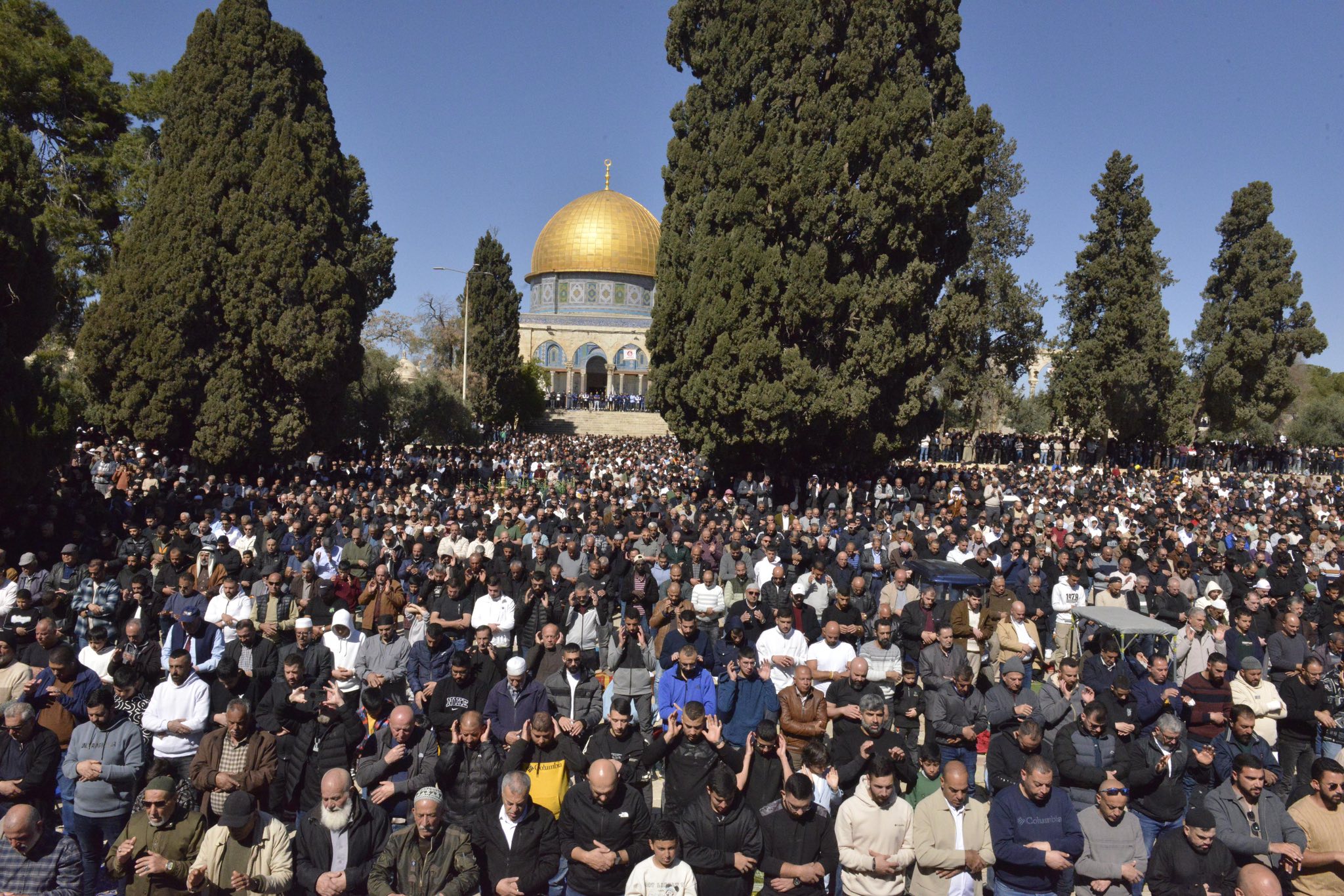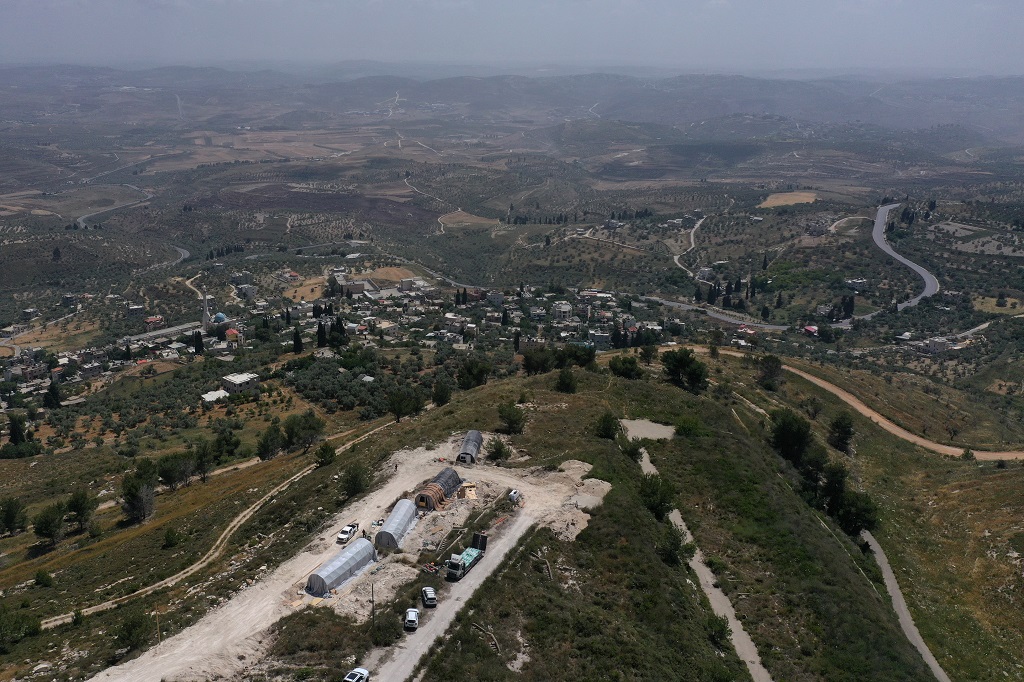RAMALLAH, November 12, 2025 (WAFA) – The Palestine Medical Complex in Ramallah has seen a remarkable development following the opening of several new specialized departments, a project supported by the Palestinian community in the United States.
The initiative aims to enhance and localize healthcare services while reducing the need for medical referrals outside the Palestinian healthcare system.
The newly inaugurated units include a vascular center, a women's health and breast cancer department, a pathology laboratory, a pulmonary function laboratory, a pediatric radiology room, and mobile ultrasound equipment. These healthcare projects were implemented through a partnership between Physicians for Palestine (PfPal) and the American Federation of Ramallah-Palestine, with a generous donation from Shawqi Shaheen, and in full coordination with the Palestinian Ministry of Health and the administration of the Palestine Medical Complex.
Rajai Khoury, Vice Chairman of the Board of Directors of Physicians for Palestine, described the collaboration as an inspiring model of the power of teamwork, unity of purpose, and a spirit of giving in achieving a tangible impact that serves Palestinian people.
He told WAFA that the advanced equipment and devices provided to the new departments will contribute to increasing diagnostic accuracy, expanding the scope of specialized care, and improving treatment outcomes.
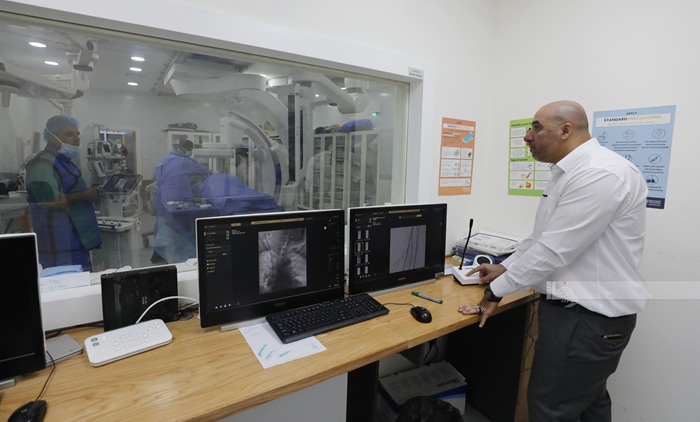
He also mentioned the "Hanan Relief" team's initiative, which contributes to developing the healthcare sector in Palestine through its home dialysis program.
"This program enables patients to receive treatment safely in their homes, stressing that it is a vital initiative that complements these comprehensive medical efforts."
He emphasized that these initiatives, taken together, constitute a significant step towards building a stronger and more resilient healthcare system to serve the Palestinian people.
The "Physicians for Palestine" organization comprises more than 50 physicians, healthcare professionals, and volunteers from across the United States, the Middle East, and Europe. It works to provide medical relief, strengthen healthcare systems, and ensure that everyone has access to dignified treatment that adheres to the highest standards of safety and quality.
Murad Barakat, Director of the Palestine Medical Complex, told WAFA that the operation of these departments "represents a true model of integrated efforts between those inside and outside Palestine."
He further praised the significant support provided by the Palestinian community in the United States, which contributed to providing advanced medical equipment previously unavailable in Palestinian government hospitals.
Barakat emphasized that these projects reflect the deep connection of Palestinians everywhere to their homeland and their determination to provide healthcare services befitting the Palestinian citizen without the need to travel abroad for treatment.
He also noted the ongoing support from Physicians for Palestine and the American Federation of Ramallah for the Palestinian health sector in general, and for the Palestine Medical Complex in Ramallah in particular. He expressed his appreciation for the generous donation from Ramallah-born man, Shawqi Shaheen, continuing the legacy of giving begun by his late father, Aziz Shaheen, and his late brother, Nassib Shaheen.
He explained that the new specialized departments provided medical services previously unavailable at the complex, particularly in the areas of osteoporosis, women's health, breast cancer diagnosis and treatment, and the diagnostic pathology department, which was equipped with the latest technology available globally. This enables doctors to obtain accurate and rapid results for patient examinations.
Barakat also mentioned the peripheral catheterization department, which allows patients to receive services in their local areas without needing to travel to other hospitals.
He noted that the establishment of these departments came amidst the suffering of the Palestinian people due to the ongoing Israeli occupation and the withholding of Palestinian tax revenues ("clearance funds"), which threatens the Palestinian health sector.
He affirmed that the support of Palestinians in the United States contributed to the development of health services at the complex and reduced the need for medical referrals abroad.
Since its opening on April 1st, the Women's Health Department has received over 600 patients. The department is equipped with a range of specialized and advanced devices for the accurate diagnosis of breast cancer, biopsies, bone density scans, and colposcopy.
The Pathology Department has also undergone a significant transformation with the introduction of new equipment that has greatly increased diagnostic accuracy and reduced the time required to obtain results. This has enabled thousands of examinations to be conducted and minimized the need to send samples to external laboratories, directly impacting the speed of diagnosis and medical decision-making.
Alaa Awda, a radiology technician in the Women's Health and Breast Cancer Department at the complex, explained to WAFA that the department offers bilateral mammography for women, primarily serving those diagnosed with breast cancer or those who suspect lumps or calcifications in their breasts.
She also noted that the Osteoporosis Department serves women and men of all ages, especially patients with cancer, kidney disease, and chronic illnesses that lead to osteoporosis, as well as patients awaiting joint replacement surgery.
She emphasized that the equipment donated by Mr. Shawqi Shaheen through the partnership between Physicians for Palestine and the American Federation of Ramallah-Palestine is among the most advanced diagnostic tools available globally, ensuring the best possible service for patients.
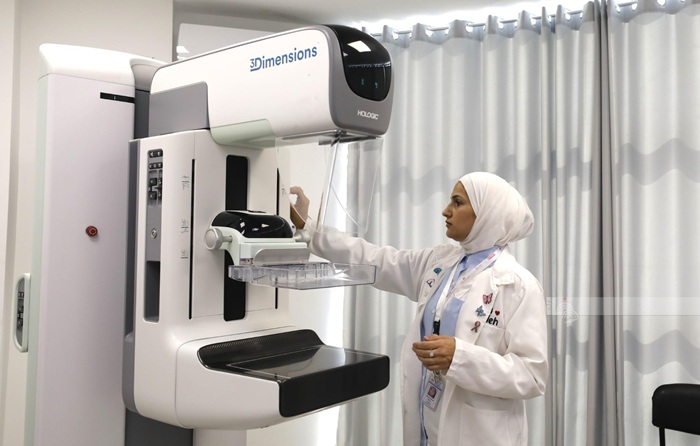
Meanwhile, Iftikhar Shuja'iya, a laboratory technician in the sample testing department, stated that the new equipment enables doctors to visualize cell types with high precision, and that this technology has significantly reduced the costs associated with sending samples abroad.
The Peripheral Catheterization Department is one of the most impactful and vital departments, having provided specialized services for the diagnosis and treatment of peripheral vascular diseases and cerebral catheterization for the past two years. The number of cases treated has exceeded 500 from various northern governorates.
Amir Mansour, head of the department, confirmed to WAFA that the operation of this specialized department has led to a reduction in the number of medical referrals abroad, which previously incurred significant costs for both citizens and the state. It has also contributed to shortening patient waiting times for specialized examinations and treatment interventions.
He explained that the advanced equipment used includes peripheral and cerebral catheterization devices, which were previously unavailable in Palestine. This device is the only one of its kind in the region and serves all governorates of the country.
Mansour noted that the cost of a single procedure is now approximately $1,000, compared to the cost of a similar referral outside Ministry of Health hospitals, which used to reach around 25,000 shekels.
The impact of these new departments extends beyond the Ramallah and Al-Bireh governorates, as the complex receives patients from across the West Bank. The availability of these services has significantly reduced the financial and logistical burden on patients.
Undersecretary of the Ministry of Health, Wael Al-Sheikh, told WAFA: "Thanks to the generous support of the Palestinian community in the United States, the Palestine Medical Complex is now able to provide advanced services comparable to specialized medical centers, thus enhancing the Palestinian health sector's capacity to serve patients with high efficiency within the available local resources."
Al-Sheikh noted that the Ministry is working closely to strengthen community partnerships with Palestinians in the diaspora, expressing his gratitude for such initiatives that serve citizens and support the Ministry's efforts to develop its services.
He called for further support, especially under the difficult circumstances facing the State of Palestine.
Y.S




